PROTECT YOUR DNA WITH QUANTUM TECHNOLOGY
Orgo-Life the new way to the future Advertising by AdpathwayEric Ssenkindu Kateyanira is the Chief Executive Officer of Avian Conservation Uganda (ACUS), a youth-led non-profit working to protect Uganda’s birdlife. He studied Conservation Biology, is now pursuing a Master’s in Environmental Management, and has long been passionate about birds and their habitats. His favorite species is the Red-cheeked Cordon-bleu, though he also has a special interest in the Papyrus Gonolek.
Red-cheeked Cordon-bleu
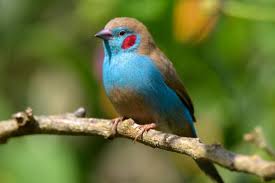
Why is Uganda such an important place for bird conservation?
Uganda lies between the Congo basin’s tropical forests and the savannahs of East Africa, within the Great Rift Valley. This geography creates a wide range of habitats that support close to 1,100 bird species — more than half of Africa’s total and about 11% of the world’s. The country holds 24 Albertine Rift endemics in the Bwindi–Mgahinga ranges, including Grauer’s Broadbill and Rwenzori Batis, and one endemic found only in Uganda, the Fox’s Weaver. A second, the Karamoja Apalis, is still under review. This diversity makes Uganda an especially important place for bird conservation.
Rwenzori Batis
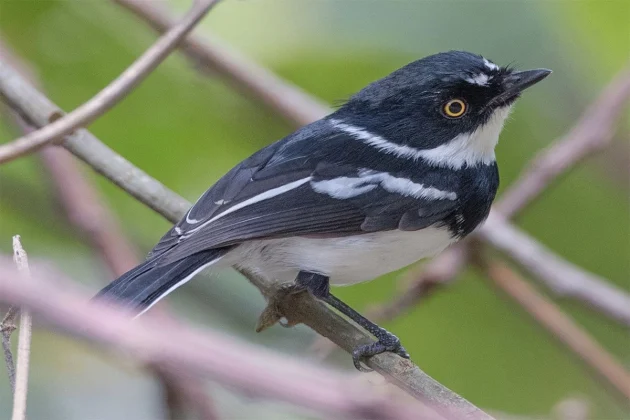
What are the main threats to Uganda’s birdlife?
The greatest threat is habitat loss, driven by farming, infrastructure development, population growth, and urbanization. Wetlands, forests, and lake shores are shrinking. Birds are also affected by illegal hunting, poisoning, and trapping — sometimes for food during droughts. Trade in species such as the endangered African Grey Parrot adds further pressure.
How does ACUS respond to these threats?
We focus on research and monitoring to understand how bird populations are changing. We share this information with local communities through workshops, and we work with them on sustainable livelihood options that are compatible with bird conservation. We also engage in policy advocacy and restore degraded areas through tree planting.
Indigenous Tree Day
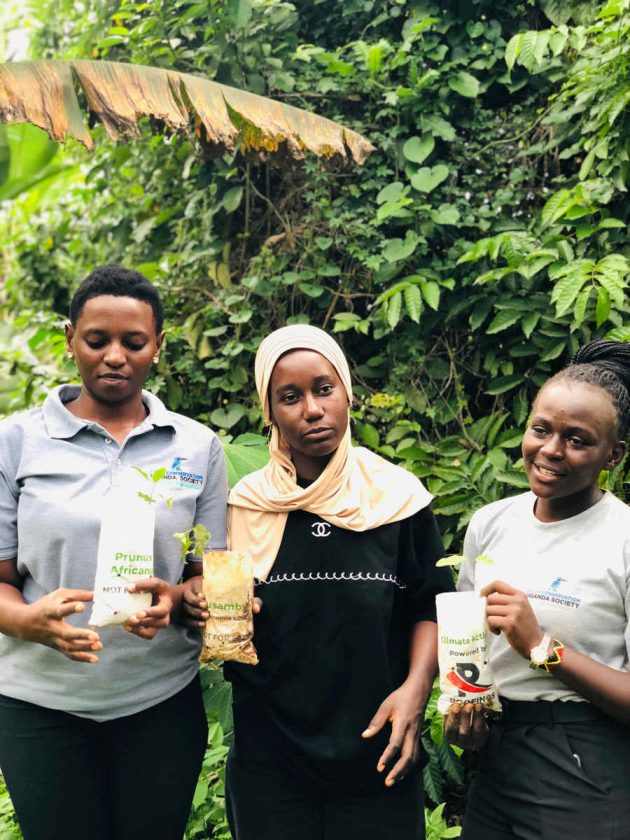
Could you share some specific projects?
- Rescuing two Shoebills that had been kept in captivity in Kumi District.
- Organizing Run for Birds 2025, an awareness event with the theme “Every step saves a species.”
- Training the Mabamba ACUS Birding Club in bird identification and monitoring.
- Producing a policy brief on the challenges facing the Lutembe Bay wetland.
- Surveying bird populations in Ekyizimbi swamp, a Shoebill site in western Uganda.
Shoebill rescue
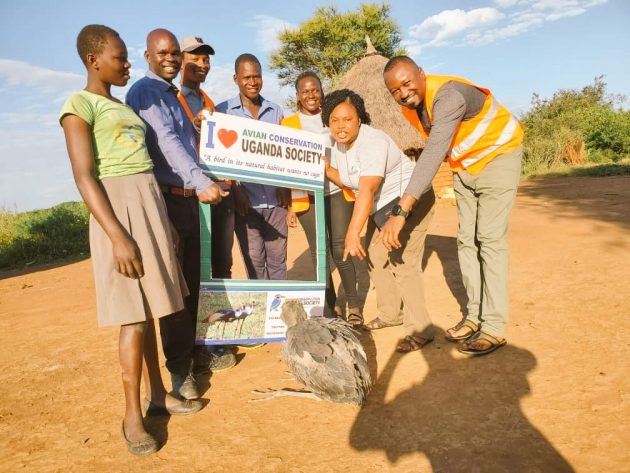
Run for Birds
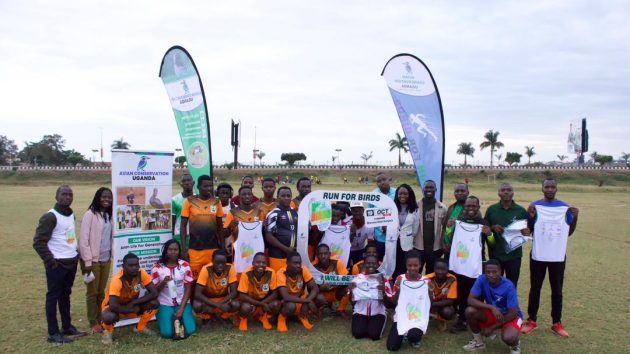
Besides the Shoebill, are there other species you focus on?
Yes. For example, we have been looking for Shelley’s Crimsonwing, an Albertine Rift endemic last recorded in Bwindi in 2015. Our surveys have not found it yet, though we have recorded the closely related Dusky Crimsonwing. Raising awareness about species like this is important, since their status is uncertain and they may already be gone from Uganda.
Shelley’s Crimsonwing
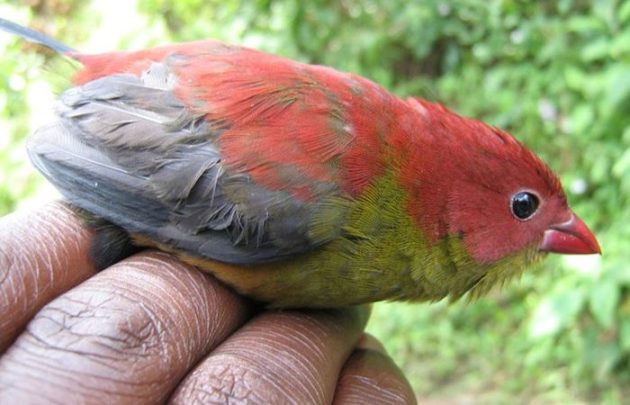
When and why was ACUS founded?
ACUS was established in 2022 by bird guides who wanted to give something back to the birds that had supported them through ecotourism. They felt it was important that future generations also have the chance to see and benefit from Uganda’s birdlife.
Birding at Mabamba
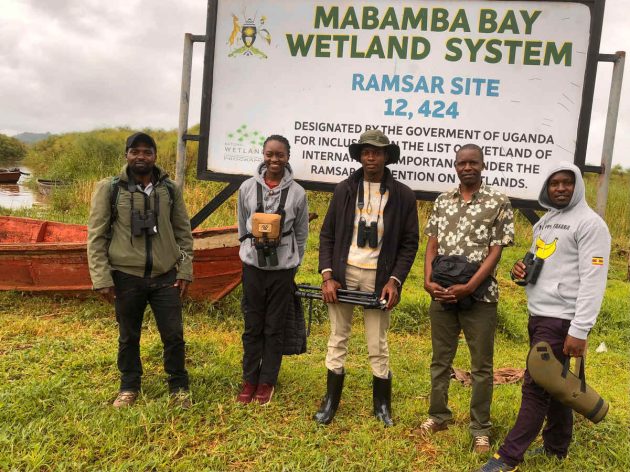
What is your role, and how did you come to it?
I serve as Chief Executive Officer, or Team Leader. I first joined ACUS as Conservation and Operations Manager after studying Conservation Biology at Makerere University. I was later appointed CEO based on my leadership experience and commitment to the organization’s vision.
ACUS is described as “youth-led” – what does that mean in practice?
Most of our 500 members are between 18 and 30, and our secretariat is entirely made up of young people. We also establish birding clubs in local communities, train young people to identify and record birds, and equip them with basic tools for guiding and citizen science. Our ACUS School of Ornithology runs short courses to build skills for bird research and bird tourism.
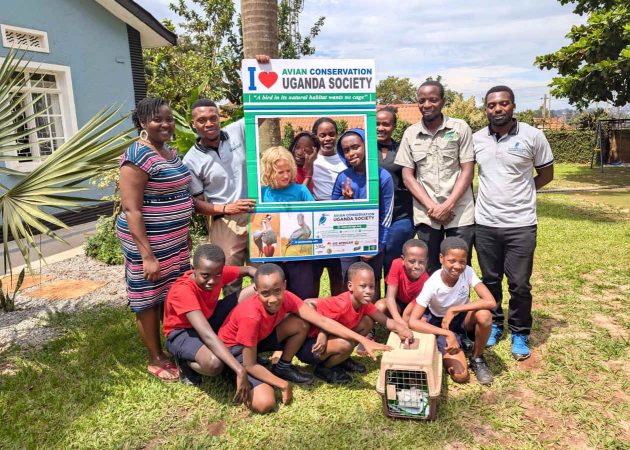
What motivates young people to join?
Unemployment is high, and bird conservation offers opportunities. Through tourism, guiding, and related work, young people can earn income while protecting their environment. Many see ACUS as a way to create “green jobs” and take part in conservation at the same time.
Given Uganda’s economic challenges, can people really afford to support bird conservation?
In the past, there was little interest, but that has begun to change. Birding tourism now brings income to communities and the country as a whole, and the government is giving more attention to bird conservation. Civil society organizations and international donors have also played a role in raising awareness and supporting conservation.
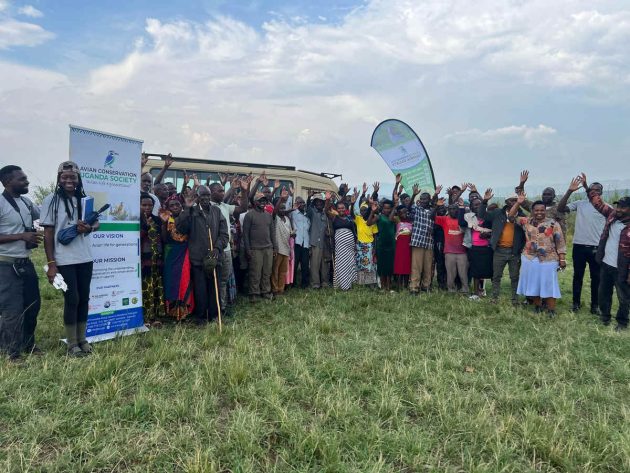
How is ACUS financed, and what challenges come with that?
Our main sources of funding are donor-supported projects and membership fees. The difficulty is that project funding is short-term and depends on donor priorities, which makes long-term planning difficult.
Does ACUS engage in policy or politics?
Yes, mainly through advocacy. We contribute to policy discussions through the Environment and Natural Resource Civil Society Network, provide input into position papers, and share policy briefs with relevant government bodies.
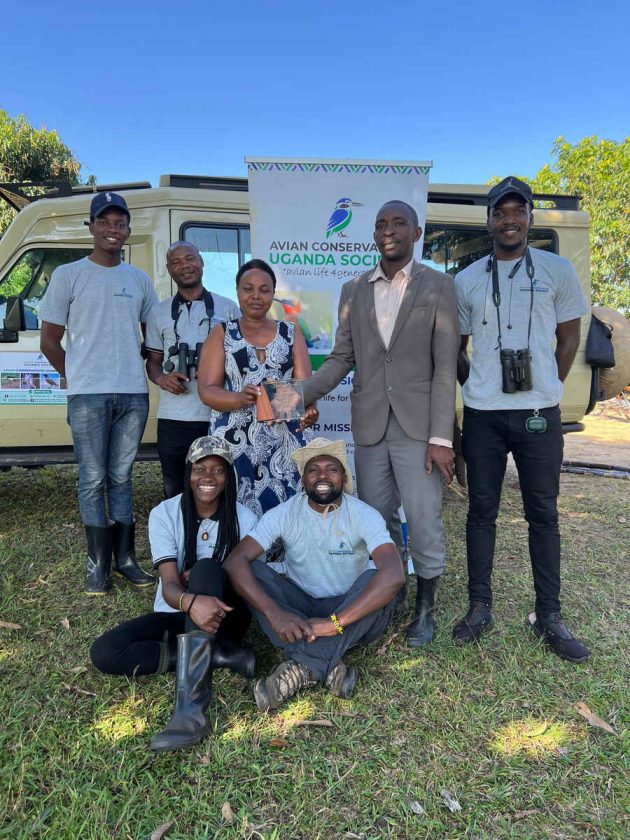
What are ACUS’s long-term goals?
- Strengthen connections with international bird organizations for knowledge exchange.
- Expand monitoring and data collection on Uganda’s birds.
- Support communities to benefit from conservation and ecotourism.
- Establish a bird ringing station in Uganda.
- Create a rescue and rehabilitation center for birds.
- Develop the ACUS School of Ornithology to train more young conservationists.
Our aim is to make sure birds and their habitats are valued and protected, and that they remain part of Uganda’s future.
Rwenzori Turaco
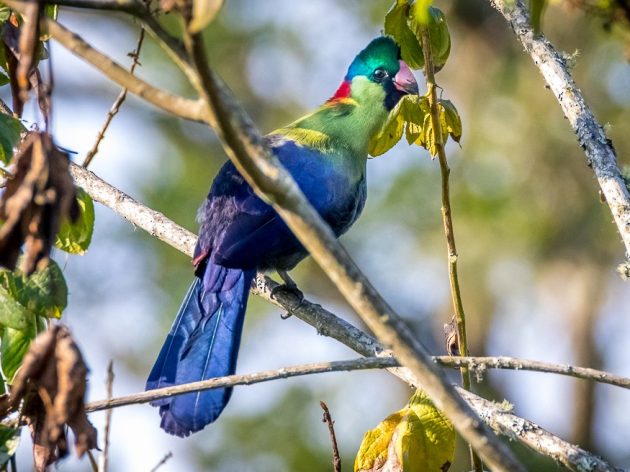
For readers who want to learn more or get involved, how can they connect with ACUS?
- Email: [email protected]
- Website: www.acugs.org
- Location: Kitala-Bukandekande, 1 km from Kampala–Entebbe Road, P.O. Box 109157, Kampala, Uganda
- Phone: +256 776 781111
Cover Photo: Dusky Crimsonwing






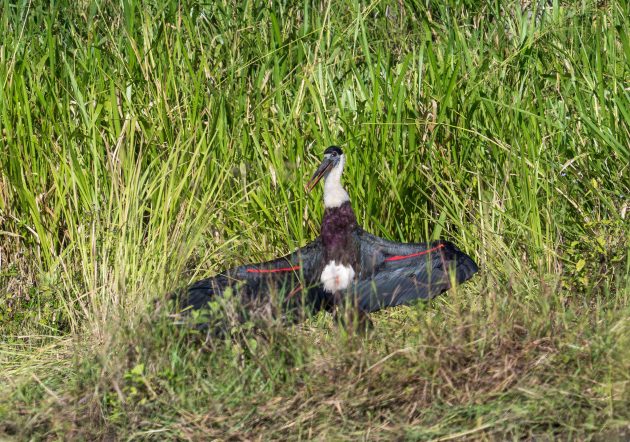
















 English (US) ·
English (US) ·  French (CA) ·
French (CA) ·